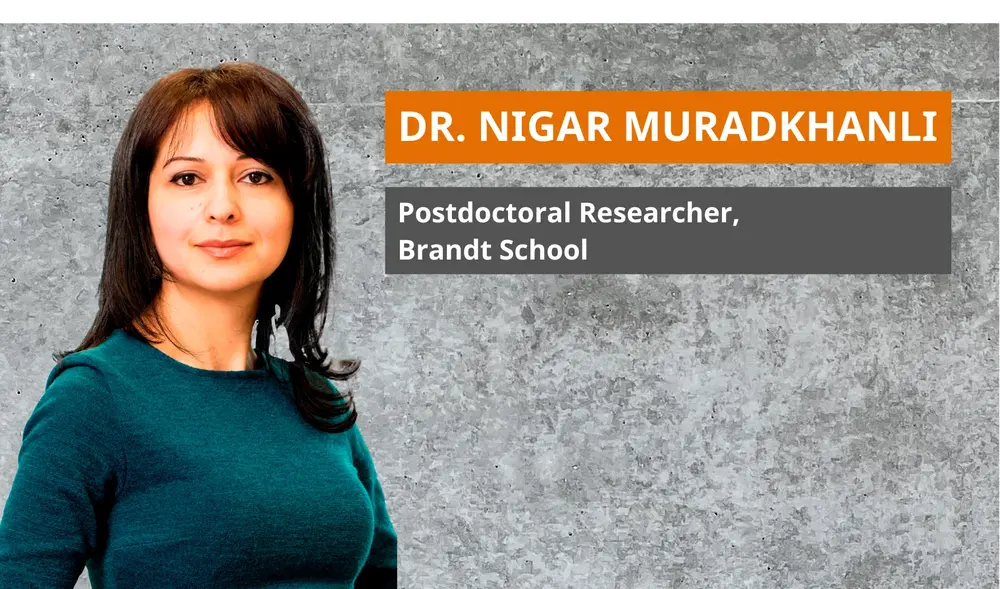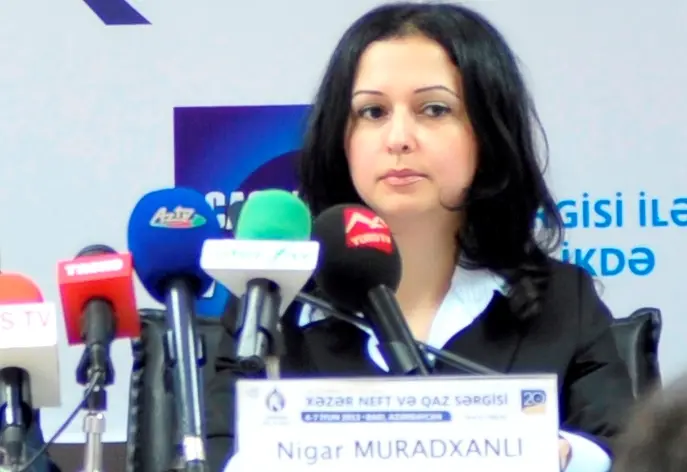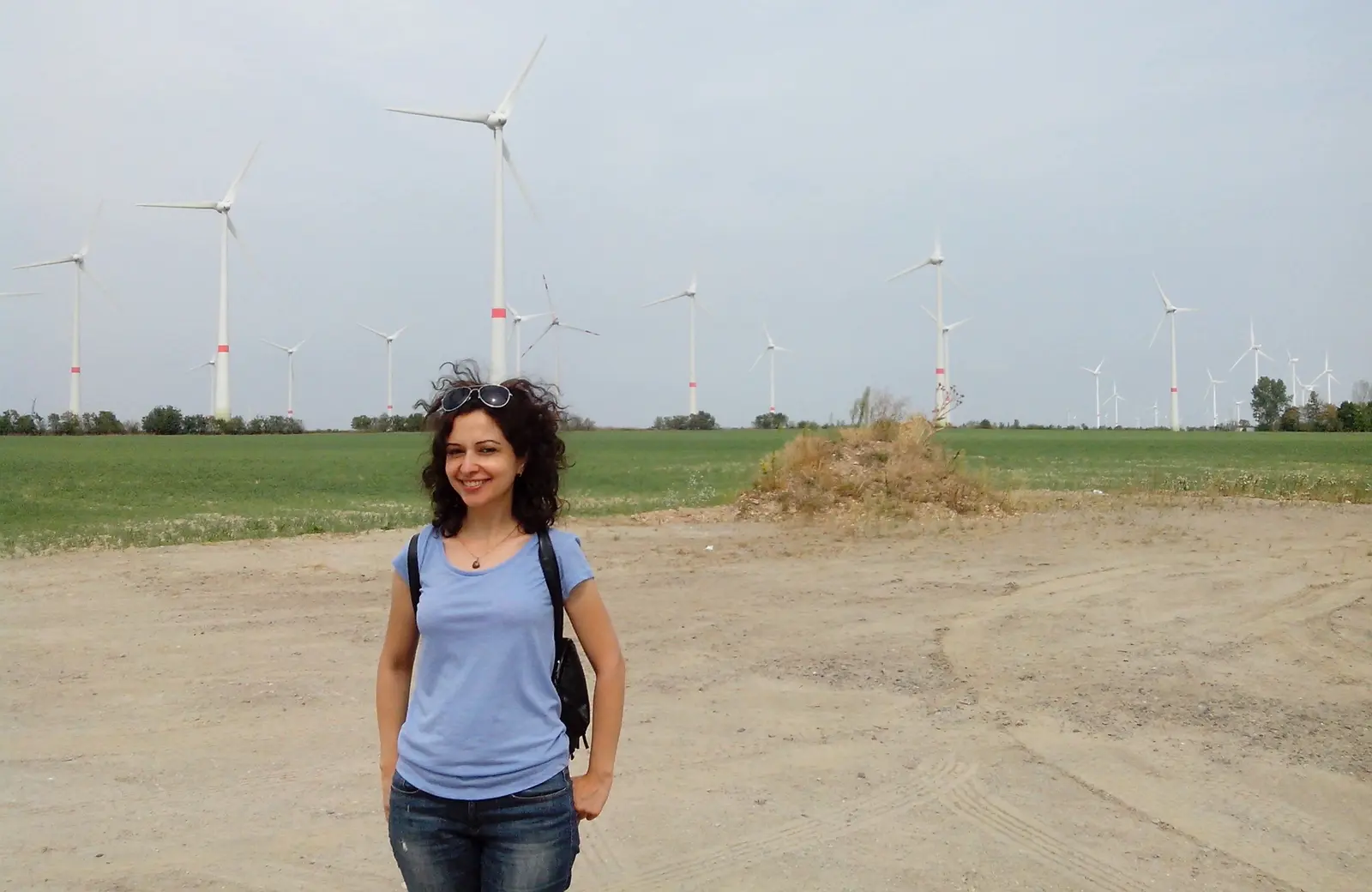The Bulletin interviews and welcomes Dr. Nigar Muradkhanli

Dr. Nigar Muradkhanli is our new member of the faculty at the Willy Brandt School of Public Policy. She joins us as a postdoctoral researcher, under the guidance of Professor Dr. Andreas C. Goldthau on the project with a focus on supply chains for German clean energy technologies. Let’s share the stories of our newest member!
Thanks so much for joining us! Congratulation on your new position! Could you please tell us a little bit about yourself, and what motivated you to work on the topics of energy and economic security?
Thanks for the congratulations and inviting me for an interview.
My involvement in energy research began during my Master’s study in economics at Baku State University, with a research project on environmental modelling of economic activity using an oil refinery as an example. Energy is one of the most debated issues in international relations, and as a result, has become the subject of both conflict and cooperation at various levels. In many cases, aspects of energy, economics and security are linked. Because of its impact on both national security and economic development, energy is among the most highly politicised commodities.
Prior to my doctoral research, I led international energy conferences for about nine years. These years provided me with an experience of exchanging views with relevant scientists, representatives of business and politics, as well as required me to keep abreast of developments in the energy sector, which consequently had a significant influence on my choice of an energy topic for my doctoral study.
My doctoral study on the security of gas supply in Germany started at Freie Universität Berlin, and then, in connection with my academic supervisor’s move to Hochschule für Politik München, continued at the latter institution. The academic experience gained during my doctoral study paved the way for me to pursue postdoctoral research in the political economy of energy. After successfully defending my dissertation, I joined the Willy Brandt School of Public Policy as a postdoctoral researcher. My current research, led by Professor Dr. Andreas C. Goldthau, focuses on Germany’s clean energy technology supply chains.

Before coming to the Brandt School, you conducted doctoral research in Berlin and Munich, How was the experience? Tell us about your doctoral research project.
Doctoral research at Freie Universität Berlin and Hochschule für Politik München had a profound effect on my experience in political science. In this regard, the important role of my academic supervisors, Professor Dr. Miranda Schreurs and Professor Dr. Stefan Wurster should be emphasised. Throughout my study, I was surrounded by an inspiring academic environment. As a member of the mentioned institutions, I had the opportunity to participate in many academic events, exchange views with scientists and experts from different backgrounds and various disciplines. These years are also remembered for several research-related trips abroad and within Germany. In 2015, at the beginning of my doctoral study, I had the opportunity to dive deeply into Germany’s energy sector and its transition to sustainable energies through several field trips. Visiting the open-cast coal mine of Welzow and Gut Geisendorf, located southeast of Berlin in Lausatia and the energy-self-sufficient village of Feldheim in Brandenburg, which produces its own wind, solar and biopower, left unforgettable impressions.
My doctoral research was about German-Russian gas relations, with a major focus on the Nord Stream 2 project. Although the Nord Stream 2 pipeline was a project agreed upon between commercial players, it was built in a tense geopolitical context and was even considered one of the most controversial international pipeline projects. For many years, Germany pursued close ties to Russia, expanding its dependency on Russian gas to over half of its entire gas supply. This changed dramatically with the Russian invasion of Ukraine in early 2022. Even before this invasion, Germany was rapidly replacing the cornerstone of its energy structure. The environmental movement as a powerful political force in Germany influenced the future role of gas in the German energy mix. Gas cooperation between Germany and Russia thus presented a challenging case of energy relations, which motivated me to start this research. In my doctoral study, I attempted to show how political and economic dimensions in German-Russian gas relations changed with time.
Why do you choose the Brandt School for your postdoctoral research project? Why is the topic of supply chains for German clean energy technologies so important?
Considered the oldest professional public policy school in Germany, the Brandt School is one of the best institutions for conducting research in political science. Taking this opportunity, I express my gratitude to the University of Erfurt for awarding me a initialization scholarship under the “Female Professor Programme of the State and the Federal States” to conduct postdoctoral research. Professor Goldthau, under whose guidance I conduct this research, is one of the leading political scientists in the fields of international political economy, energy security, global energy governance, climate change and low-carbon energy transition, who also advises the German Bundestag. I am honored to work with such a professional and to learn from his academic knowledge.
The chosen research topic is especially relevant in the current geopolitical and geoeconomic situation. Germany’s geoeconomic power leads to the predominance of economic logic in Germany’s foreign policy decisions. Technological and political developments have been the main driving forces behind Germany’s energy transition, while clean energy has gained geoeconomic importance in its energy policy. Accordingly, technological developments in renewable energy technology have led to the creation and development of industries related to renewable energy sources. In the post-fossil fuel era, when energy markets will be dominated by renewables, renewable energy technologies will become one of the major determinants of geoeconomic power. In this regard, Germany’s advanced technologies for renewable energy development and energy efficiency may reinforce its global status as a high-tech leader. Foreign inputs play an important role in Germany’s clean energy technologies, however.
In the current political and economic realities, increasing the security and resilience of supply chains while maintaining a commitment to the principles of transparent markets has become increasingly important. The Covid-19 pandemic and the Russian-Ukrainian war have put tangible pressure on global energy supply chains, leading to skyrocketing oil, gas and coal prices, as well as shortages of semiconductors and the critical minerals needed to produce clean energy technologies. The share of raw materials in the total cost of all clean energy technologies has also risen sharply. Clean energy supply chains rely heavily on minerals, not fossil fuels. Accordingly, relevant energy security considerations are closely related to critical minerals, materials and components required for the production of clean energy technologies. Since critical minerals are geographically concentrated, self-sufficiency is not mainly seen as an option to secure the energy supply. Clean energy technology supply chains involve new opportunities, but also new vulnerabilities and risks that are different from fossil fuel supply chains. These aspects make it relevant to study Germany’s clean energy technology supply chains.

How do you see the German research environment for foreigners? (For example, what is the most difficult part?) Could you share some tips for foreign students to apply for research funding in Germany?
I consider that German universities are responding well to creating the necessary research environment for international students. When I arrived in Germany in late 2014 for my doctoral research, I did not speak German at all, since my research was planned to be carried out in English. So my study was accompanied by the challenge of learning a new language, when the opportunities created by my university in this regard were very helpful. German universities usually include German courses in their optional course programme, which are very useful for international students. I am glad that my stay in Germany, in addition to my academic research skills, also gave me a good knowledge of the German language. I now use German not only in everyday life, but also to refer to academic literature.
German universities offer numerous opportunities for research funding. The main aspect in this regard is finding a relevant funding opportunity. Some universities advertise vacancies for specific research projects for a fixed period, while others have a flexible approach to the topic of research and its duration. In the former case, the essential argument is how a particular candidate meets the requirements of the stated research project. In the latter case, what matters is how a candidate can present his/her own research project in order to obtain funding for it. The relevance of the chosen topic plays a decisive role in this regard.
Does your background give you a different perspective researching on your topics? How do you build your expertise in research areas?
Along with my political science background, I hold a Master’s degree in economics. These two are ideally combined with each other to consider the research topic from different angles. This is especially true for studies in the field of political economy.
The state of the art is the first step at the beginning of any research. It is only by gaining extensive knowledge in a particular field that real research gaps in the chosen field can be identified, and a research question can be posed. On the basis of the acquired knowledge, several hypotheses can be formulated that provide ground for empiric research.
Scientific collaboration (through conferences, webinars, roundtables, colloquiums, etc.) allows the researcher to look at the research from different angles and strengthen arguments. The choice in regard to building research expertise also depends on the nature of the particular study. In all cases, academic research differs from other research in its scientific basis.
Thank you so much for your time! Best of luck with this new role!
Thank you for taking the time to interview me.
Dr. Nigar Muradkhanli's University Erfurt Profile
Photos courtesy of Dr. Nigar Muradkhanli
About the interviewer
Clara Law is the Bulletin's Editorial Assistant at the Willy Brandt School.
~ The views represented in this blog post do not necessarily represent those of the Brandt School. ~